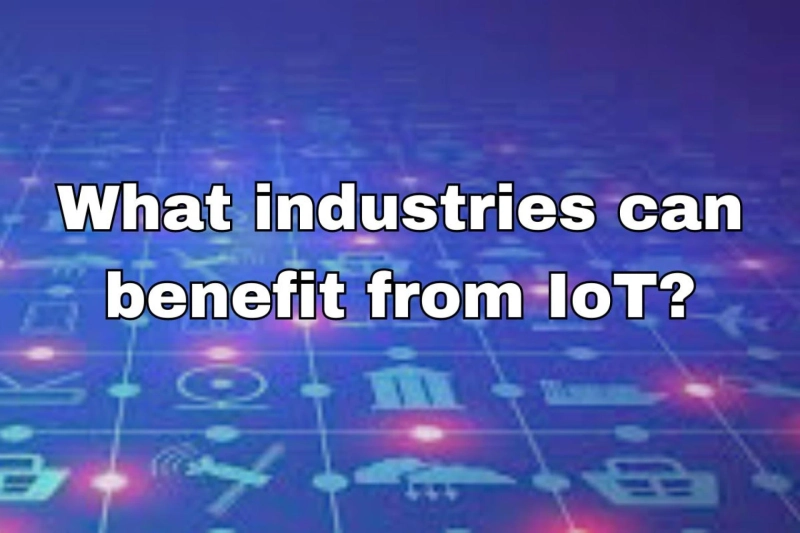Introduction:
In the dynamic landscape of technology, the Internet of Things (IoT) has emerged as a transformative force, connecting devices and enabling data-driven insights across various industries. In this blog post, we'll explore the diverse sectors that stand to gain substantial benefits from the integration of IoT technologies, ushering in a new era of efficiency, innovation, and connectivity.
Manufacturing Industry:
In manufacturing, IoT facilitates the creation of smart factories. Connected sensors on machinery and equipment provide real-time data on performance, enabling predictive maintenance, reducing downtime, and optimizing overall production processes.
Healthcare Sector:
The healthcare industry benefits from IoT by enhancing patient care through remote monitoring devices, wearable health trackers, and smart medical equipment. Real-time health data enables healthcare professionals to make informed decisions, improve treatment outcomes, and streamline operations.
Agriculture:
Precision agriculture leverages IoT to optimize crop management. Sensors and devices monitor soil conditions, weather patterns, and crop health, empowering farmers to make data-driven decisions, conserve resources, and maximize yields.
Transportation and Logistics:
IoT transforms transportation and logistics by providing real-time tracking of goods, optimizing routes, and ensuring the security of shipments. Fleet management systems, RFID tags, and connected sensors streamline operations, reduce costs, and enhance overall efficiency.
Smart Cities:
IoT plays a pivotal role in building smart cities. Connected infrastructure, such as smart grids, intelligent traffic management systems, and waste management solutions, improves resource allocation, energy efficiency, and urban living conditions.
Retail:
Retailers leverage IoT for inventory management, customer experience enhancement, and personalized marketing. Smart shelves, beacons, and RFID technology enable real-time tracking of inventory, reduce stockouts, and provide a personalized shopping experience for customers.
Energy Sector:
IoT contributes to the development of smart grids and energy management systems. Sensors and meters monitor energy consumption, identify inefficiencies, and enable better demand-response strategies, leading to improved energy conservation and sustainability.
Financial Services:
In the financial sector, IoT enhances security and improves customer experience. Connected devices provide real-time fraud detection, secure transactions, and personalized financial services, contributing to a more robust and customer-centric financial ecosystem.
Conclusion:
The Internet of Things is a transformative force that transcends industry boundaries, offering unprecedented opportunities for innovation and efficiency. As industries continue to integrate IoT technologies into their operations, the benefits in terms of cost savings, enhanced productivity, and improved customer experiences are becoming increasingly apparent. Embracing the era of connectivity, these diverse sectors are poised to thrive in a world where the Internet of Things is driving the next wave of technological evolution.
FAQs about IoT
What problem does IoT solve?
IoT solves the problem of limited connectivity and data accessibility by enabling the seamless connection and communication of devices, leading to improved efficiency, automation, and data-driven decision-making across various industries.
What is the main disadvantage of IoT?
The main disadvantage of IoT is the heightened security and privacy concerns associated with the vast amount of interconnected devices, making them potential targets for cyberattacks and unauthorized access.
What are the 3 main components of IoT?
The three main components of IoT are:
Sensors/Devices:Physical devices or sensors that collect data from the environment or objects.
Communication infrastructure that enables data transfer between devices, often through the internet.
Cloud-based servers or edge computing systems that process and analyze the collected data, providing insights and enabling actions based on the information.
Also Read
data analyst course in hyderabad



